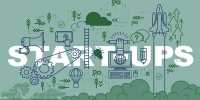There’s no denying that we live in unusual times. Take a quick look back at recent events to see a horror show of disorienting and depressing events: the COVID-19 pandemic, rising wealth inequality, deepening political polarization, racial oppression, the lingering threat of nuclear war, an ever-intensifying climate crisis, continued environmental destruction, and a shake-up of geopolitical power. It’s understandable that so many people fear we’re on the verge of a worldwide societal breakdown.
Things are certainly unsettled at the moment, but this doom-stricken generation is not alone in its apocalyptic fear. A cursory review of comments from previous millennia reveals that humanity has frequently concluded that civilization has gone to the wolves and that the end times are approaching.
IN THE “DARK AGES,” DARK OUTLOOKS, Whether right or wrong, the middle Ages aren’t frequently thought of as a period of glowing optimism, and it appears that many individuals at the time felt the same way. According to legend, Pope Innocent III (born 1161 CE) foretold that the world will end in 1284. Why? Because it would be 666 years after Islam’s rise in 618. Regrettably, he died in 1216, unable to recognize how mistaken he was.
In the 14th century, the Black Death killed off over 100 million people in Eurasia and North Africa, so it’s hardly surprising that people weren’t very optimistic about humanity’s future. “No bells tolled, and nobody mourned no matter what his loss because practically everyone expected death,” wrote a chronicler in modern-day Siena, Italy. “This is the end of the world,” some stated and believed.
Martin Luther, the German clergyman who is credited with launching the Protestant Reformation in the 16th century CE, lived at a period when new and radical ideas were causing a stir in society. He also believed the end of the world was approaching: In 1528, Luther observed, “Things are approaching their conclusion.” “I hope the last day isn’t postponed for more than a hundred years.
THE GENERAL CRISIS IN THE 17TH CENTURY, It was a genuinely bleak period to be living in the seventeenth century. Bloody wars, unusually frigid weather, social upheaval, and economic disarray characterized this century, prompting some historians to label it “The General Crisis.” The Thirty Years’ War, a struggle focused on the Holy Roman Empire from 1618 to 1648 that was one of the most devastating wars in European history, was one of the nastiest episodes of this century.
“This appears to be one of the epochs in which every nation is turned upside down, causing some great minds to think that we are approaching the end of the world,” a booklet from Spain said in 1643, during the Thirty Years’ War. “Among all the unusual incidents of calamity and revolt, there had never been anything worse than this,” according to a record written in China around the time of the Ming Dynasty’s fall in 1641.
THE POST-WAR PERIOD AND OVERCROWDING, Heinz von Foerster was a physicist-turned-philosopher who was Austrian-American. In a 1960 Science essay, he predicted that humanity will perish owing to overpopulation on November 13, 2026. “At this date, the human population will approach infinity if it continues to increase at its current rate,” he said. The study was primarily a sarcastic jest, but many postwar intellectuals were scared about overpopulation. Professor Paul R Ehrlich and Anne Ehrlich published The Population Bomb in 1968, which projected widespread starvation in the 1970s and 1980s as a result of overpopulation.
“The fight to feed the whole human race is done. Hundreds of millions of people would starve to die in the 1970s, regardless of any current crash plans,” the book claims. “Nothing can stop a significant increase in the global mortality rate.” Although the predicted overpopulation collapse did not occur, some experts claim that the book presented certain outstanding difficulties.















